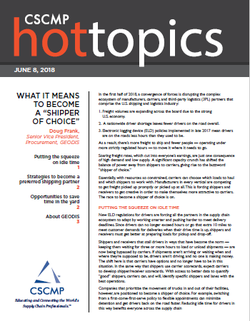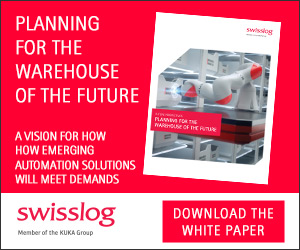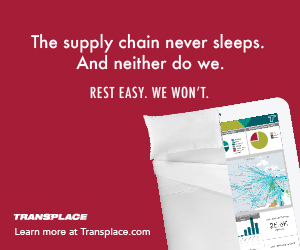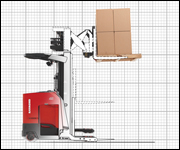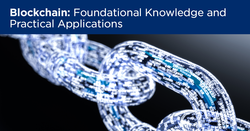 |
|||||||||||||||||||||||||||
| Archive | Subscribe | Printer Friendly | Send to a Friend | cscmp.org | |||||||||||||||||||||||||||
|
Current News
Over the past few years, CSCMP and NASSTRAC, a professional organization focused on shippers and transportation, have been working closely together on a variety of projects and discovered that there were significant synergies between the two associations and felt that there were opportunities for the two to complement one another and provide additional value to their respective members in meaningful ways.
"NASSTRAC's focus on transportatoin, given the environment, the dynamic around transportation, and a focus on it, will help us bring more education, content and thought leadership to that part of the supply chain. From CSCMP's Annual State of Logistics Report, we know that transportation is 65% of the total logistics cost. This match makes a lot of sense for our combined membership and for the scale and focus that it will bring." Rick Blasgen, CEO and President, CSCMP.
CSCMP Awards and Recognition
Connect
The unbiased, curated content of CSCMP's annual conference, EDGE, is only one of many reasons to attend supply chain's premiere event! EDGE 2018 is comprised of 22 tracks and over 100 educational session topics. Each session topic is thoughtfully constructed to not only address trends and hot topics, but to provide solutions and answers. This is an event like none other, presenting you with unlimited opportunities to learn from industry experts, hear dynamic speakers, and network with the most influential supply chain leaders in the world. Continue reading to access a promotional code and save $300 on your EDGE registration Training and Development
NEW! This year at EDGE 2018, CSCMP will be hosting the first ever review session and live examination for the SCPro™ Certification Bridge Exam. The SCPro™ Bridge Exam leverages the knowledge and credentials already earned by supply chain professionals by recognizing credentials, such as other supply chain certifications and advanced degrees. About the review session: On Sunday, September 30, from 2:00-5:00 pm CT, Dr. Brian Gibson of Auburn University will host a review session as preparation for the SCPro™ Bridge Examination. Professor Gibson will lead participants through a review of the information covered on the exam and answer questions about the exam. About the SCPro™Bridge Exam: The SCPro™ Bridge Exam is an abbreviated version of the SCPro™ Level One Exam. It is based on the eight learning blocks of the end-to-end supply chain as defined by CSCMP. Individuals who achieve a passing score on the SCPro™ Bridge Exam will be designated as SCPro™ Level One Certified.
On Thursday, June 21 and Thursday, June 28, EPA is hosting two webinars to help you as a shipper improve performance and build strong relationships with your carriers.
The first webinar will introduce you to tools that will help you understand the efficiency of your freight operations. You will also learn about the SmartWay Carrier Performance Ranking reports and how this information can be used to make effective business decisions helping you reduce your environmental impact. The second webinar will discuss what carriers have cited as critical attributes of a "shipper of choice" and how this could improve carrier relations, helping shippers attract and keep quality service providers. Edge Conference
The rising cost of transportation has created strife between shippers and carriers as they leverage the economics of supply and demand at the expense of each other. According to a new study from the University of Tennessee Knoxville’s Global Supply Chain Institute, this inherit conflict undermines a company’s ability to meet its supply chain and financial goals. "With the rise of e-commerce and consumer expectations, cost can no longer be the primary focus in transportation," says Mary Holcomb, Gerald T. Niedert Supply Chain Fellow and Professor of Supply Chain Management at the Haslam College of Business. "Transportation must be treated as a strategic element of the business plan and the end-to-end supply chain in order for companies to remain competitive in a digital economy." The research shows shippers who have appropriately aligned transportation with their business model have significantly better performance than those who have not. The report identifies seven best practices in transportation for creating this alignment and three megatrends businesses should adopt by 2025 to remain competitive. All the companies surveyed have created value from Lean methodologies and established a culture for driving transportation excellence. Other common best practices included creating strategies for long-term transportation partnerships with carriers, leveraging intermodal capabilities, customizing services to meet emerging needs, leveraging digital technology and bundling services for growth. Click "Learn More" to read more and to access the full report.
The challenge of finding enough high quality and reasonably priced trucking capacity is as daunting as ever. The surging economy and rising consumer demand has created even more pressure. Earlier this year, Wall Street Journal Logistics reported that one truck was available for every 12 loads needing to be shipped, making this the most unbalanced market since October 2005. The Federal Motor Carrier Safety Administration’s April 2018 rule requiring most commercial truck drivers to record their hours of service via Electronic Logging Devices (ELDs) has tightened capacity further (by 5% to 8%, according to FTR Transportation Intelligence). Even though last year was tough, this year might be even tougher. A report in MarketWatch stated that in December 2017, carriers charged an average 22% more than they did a year ago in the spot market.
All of this has reinforced the concern that there is not sufficient capacity in the marketplace. In two parts, we’re going to explore this issue, and specifically, how digital freight services are using new approaches based on advances in technology and data to help counter the capacity crunch: Part 1 (this issue): Technology and data will help the industry be more attractive for drivers and carriers Part 2 (next issue): Technology and data will make the drivers and carriers we have more efficient. About the author: Dan Lewis, Co-founder and CEO, Convoy
When companies start incorporating "deep learning" forms of artificial intelligence into their supply chain systems, they will be able to autonomously analyze past supply chain failures and attempt to prevent new ones.
THE SELF-LEARNING SUPPLY CHAIN marks the next major frontier of supply chain innovation. It’s a futuristic vision of a world in which supply chain systems, infused with artificial intelligence (AI), can analyze existing supply chain strategies and data to learn what factors lead to supply chain failures. These AI-driven systems then use this knowledge to predict future supply chain problems and proactively prescribe or autonomously execute resolutions. While there is still a way to go before the self-learning supply chain is a reality, recent advancements in AI suggest it is no longer "blue-sky thinking." Roundtables
|
|||||||||||||||||||||||||||
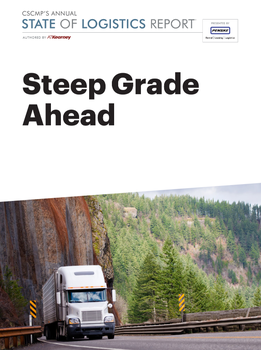
.jpg)
